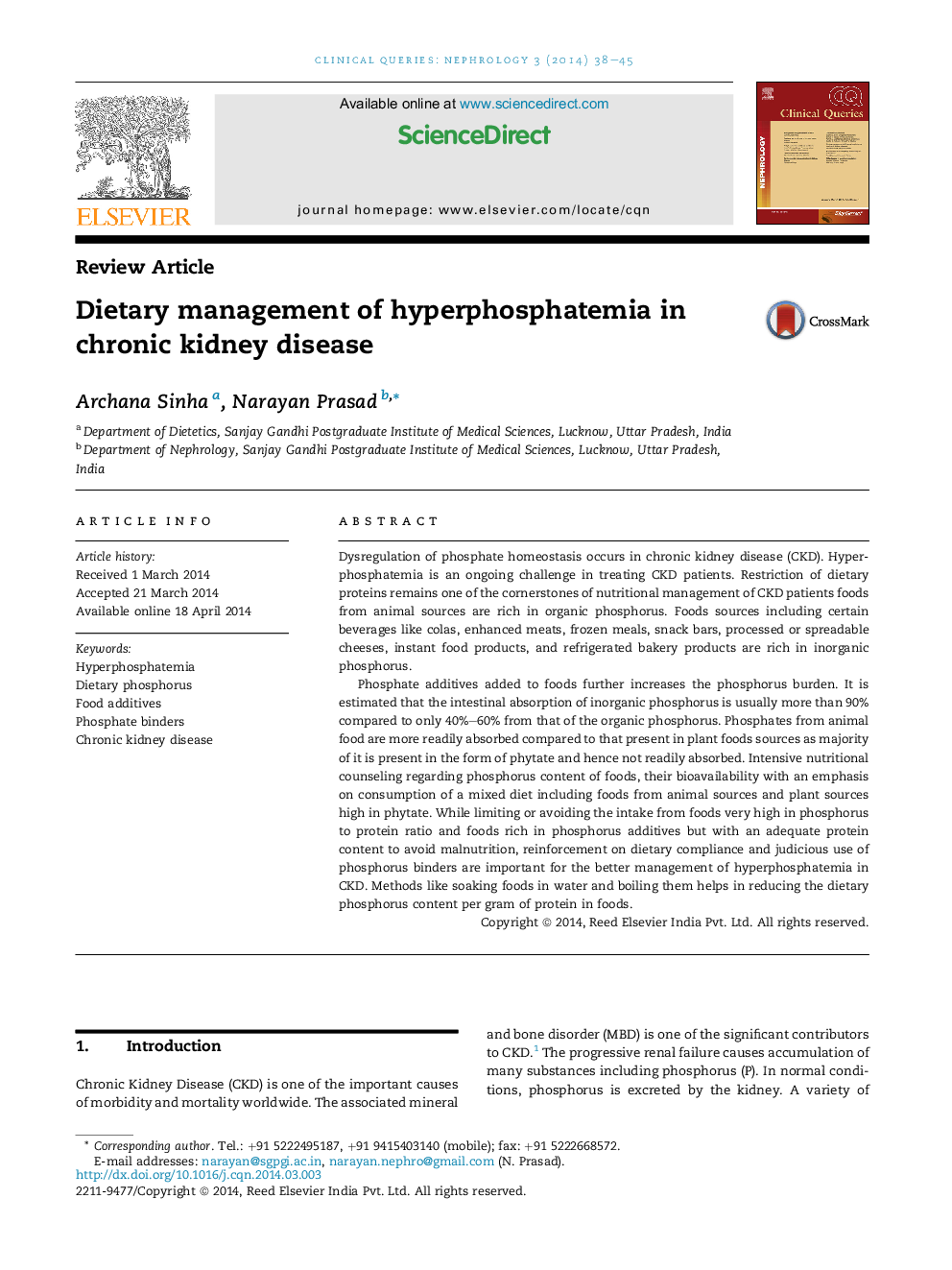| Article ID | Journal | Published Year | Pages | File Type |
|---|---|---|---|---|
| 3107945 | Clinical Queries: Nephrology | 2014 | 8 Pages |
Dysregulation of phosphate homeostasis occurs in chronic kidney disease (CKD). Hyperphosphatemia is an ongoing challenge in treating CKD patients. Restriction of dietary proteins remains one of the cornerstones of nutritional management of CKD patients foods from animal sources are rich in organic phosphorus. Foods sources including certain beverages like colas, enhanced meats, frozen meals, snack bars, processed or spreadable cheeses, instant food products, and refrigerated bakery products are rich in inorganic phosphorus.Phosphate additives added to foods further increases the phosphorus burden. It is estimated that the intestinal absorption of inorganic phosphorus is usually more than 90% compared to only 40%–60% from that of the organic phosphorus. Phosphates from animal food are more readily absorbed compared to that present in plant foods sources as majority of it is present in the form of phytate and hence not readily absorbed. Intensive nutritional counseling regarding phosphorus content of foods, their bioavailability with an emphasis on consumption of a mixed diet including foods from animal sources and plant sources high in phytate. While limiting or avoiding the intake from foods very high in phosphorus to protein ratio and foods rich in phosphorus additives but with an adequate protein content to avoid malnutrition, reinforcement on dietary compliance and judicious use of phosphorus binders are important for the better management of hyperphosphatemia in CKD. Methods like soaking foods in water and boiling them helps in reducing the dietary phosphorus content per gram of protein in foods.
